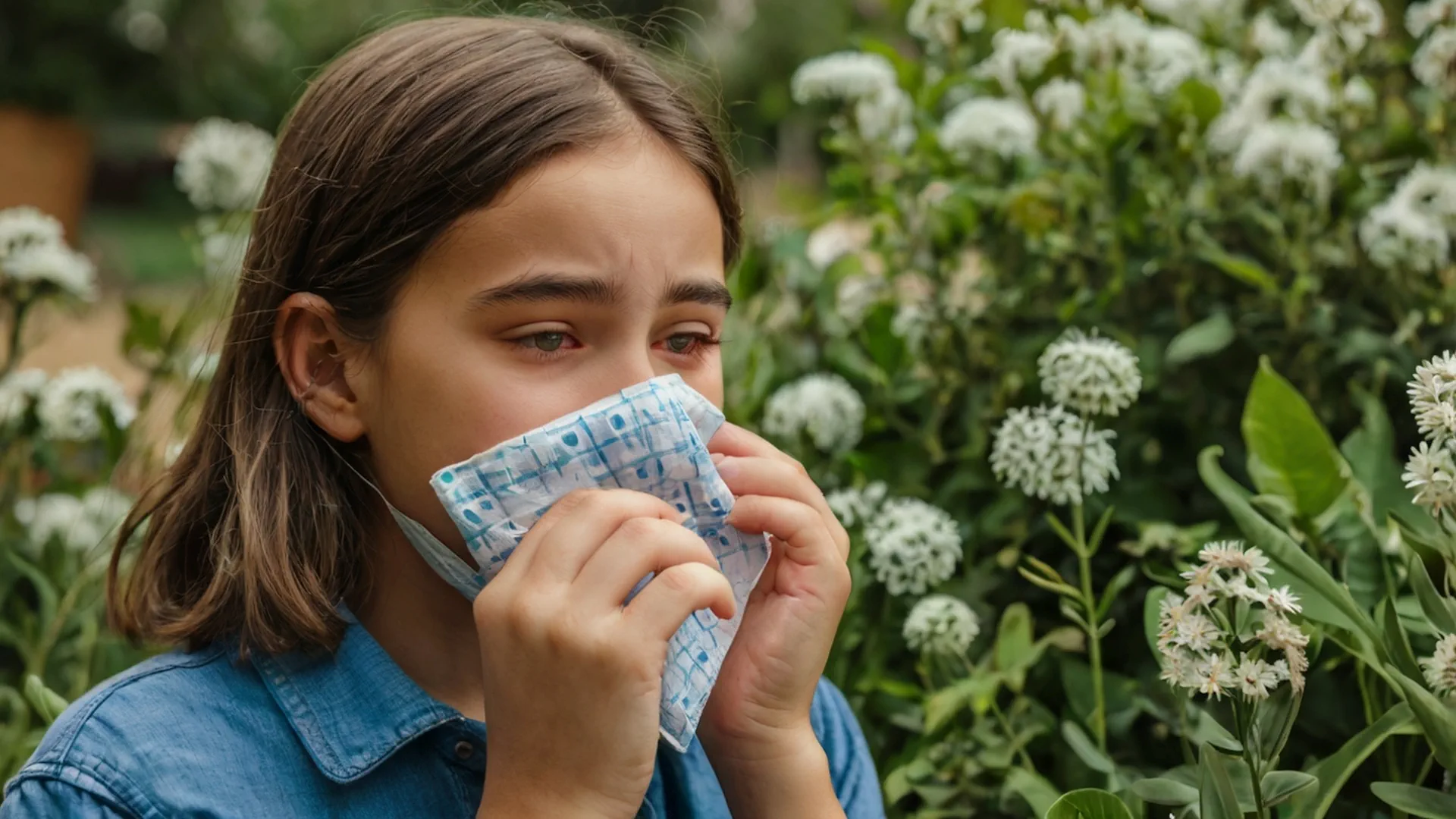
Allergist calendar for June 2024: tips and prevention
June is a wonderful month filled with the aroma of blooming herbs and abundant greenery. But for people who suffer from allergies, this time can be a real test.
What can you be allergic to in June?
Pollen: Birch, alder, oak, ash, poplar, linden, wormwood, ragweed, cereals.
Insects: Bees, wasps, hornets, mosquitoes.
Fungi: Mold fungi, cladosporium.
Food: Strawberries, apricots, peaches, citrus fruits, wheat, milk, eggs.
Medicines: Nicotinic acid, antibiotics, aspirin.
Sun: Ultraviolet (UV) rays.
Household chemistry: Washing powders, detergents, varnishes, paints.
Stress: Emotional stress, experiences.
Cross allergy:
Cross-allergy occurs when the body, sensitive to one allergen, also reacts to another similar allergen. For example, a person with an allergy to birch may be cross-allergic to apples, pears, and hazelnuts.
Cross allergy table (examples):
Possible cross-allergen
Birch pollen = Apple, pear, hazelnut, peach
Cereal pollen = Wheat, rye, barley, oats
Milk = Beef, lamb
Strawberry = Strawberry, raspberry, peach, apricot
Allergy symptoms:
Runny nose, sneezing, itching in the nose.
Conjunctivitis, lacrimation, itching in the eyes.
Cough, shortness of breath, wheezing.
Skin rash, itching, urticaria.
Swelling of the face, lips, larynx.
Nausea, vomiting, diarrhea.
Headache, dizziness, weakness.
How to avoid exacerbation of allergies in June?
Keep an eye on the pollen forecast: Use mobile apps or websites to check pollen levels in your area.
Limit your outdoor time: On days with high dust levels, try to spend less time outside, especially in the morning and evening hours.
Wear a mask: A respiratory mask will help protect the airways from pollen and other allergens.
Take antihistamines regularly: Consult your doctor to find the right one for you.
Use nasal sprays: Sodium cromoglycate or corticosteroid sprays can help relieve the symptoms of allergic rhinitis.
Moisturize the air: Dry air can irritate mucous membranes and aggravate allergy symptoms.
Wash your hands thoroughly: Wash your hands regularly with soap and water to wash away pollen and other allergens.
Watch your diet: Avoid foods that cause allergies.
Strengthen immunity: A healthy lifestyle, balanced diet, physical activity and sufficient sleep will help strengthen immunity and reduce the risk of developing allergies.
Avoid stress: Stress can make allergy symptoms worse. Practice relaxation techniques such as yoga, meditation or breathing exercises.
Strawberry allergy:
Strawberry is one of the most common seasonal allergens. Symptoms of a strawberry allergy may include itching, hives, swelling of the face and lips, nausea, vomiting, and diarrhea. If you are allergic to strawberries, it is important to avoid eating them, as well as other berries and fruits that can cause cross-allergy, such as strawberries, raspberries, peaches, apricots.
Sun allergy:
Sun allergy (photodermatosis) is a skin reaction to ultraviolet (UV) rays. Symptoms of photodermatosis may include itching, redness, rash, blisters, and swelling.
To protect against photodermatosis:
Use sunscreen: Choose a broad-spectrum sunscreen with SPF 30 or higher that protects against UVA and UVB rays.
Wear protective clothing: On sunny days, wear clothing made of heavy fabric that covers your arms, legs, and head.
Allergy to flowering:
Flowering of various plants is one of the main causes of allergies in June. Pollen gets on the mucous membranes of the eyes and respiratory tract, causing irritation and an allergic reaction.
Hives:
Urticaria is a skin reaction manifested by itchy blisters. Allergy can be one of the factors that cause urticaria.
Allergy to cats and dogs (animal fur):
Wool of domestic animals is a frequent allergen. Symptoms of allergies to cats and dogs can include runny nose, sneezing, itchy eyes and nose, coughing, shortness of breath, and skin rashes.
Food allergy:
Food allergy is an immune reaction to certain foods. Allergies to milk, eggs, wheat, strawberries are the most common examples of food allergies.
Allergy to down (poplar down):
Poplar down is light hairs that are blown by the wind and can cause allergies in people who are sensitive to it. Symptoms may include a runny nose, sneezing, itchy eyes and nose, cough, and skin irritation.
Insect allergy:
Insect bites such as bees, wasps, hornets, mosquitoes can cause an allergic reaction. Symptoms can vary from a mild local reaction to severe anaphylactic shock.
Cladosporium:
Cladosporium is a mold fungus that can grow in rooms with high humidity. Cladosporium spores are a common allergen and can cause allergic rhinitis symptoms such as runny nose, sneezing, itchy nose, and nasal congestion.
Allergy to stress:
Stress can make allergy symptoms worse. When a person experiences stress, their immune system weakens, making them more susceptible to allergens.
Allergy to nicotinic acid:
Nicotinic acid is vitamin B3, which is also used in some medicines. Allergy to nicotinic acid can be manifested by redness of the skin, itching, dizziness, nausea.
Remember:
This article is for informational purposes and is not a substitute for medical advice.
With the appearance of allergy symptoms, consult a doctor for diagnosis and treatment.
A pleasant and allergen-free walk through blooming nature in June!